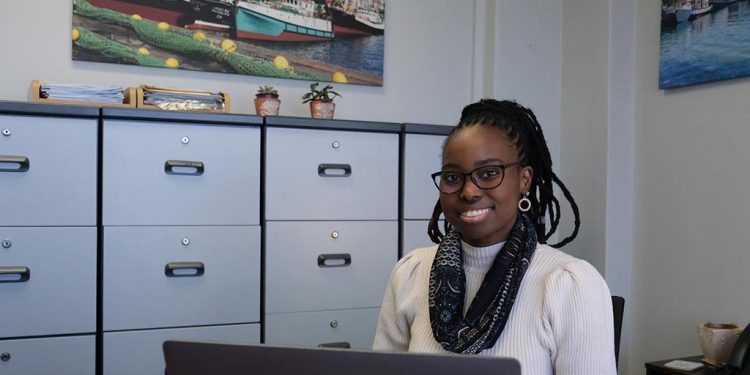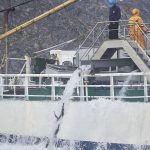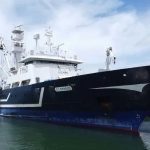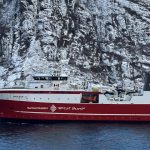SADSTIA researcher Fisokuhle Mbatha has been awarded a grant from the Marine Stewardship Council’s Ocean Stewardship Fund (OSF) to improve knowledge about the hake stocks that support the South African trawl fishery.
The £3200 (R78,000) student research grant will help to fund her doctoral studies, which are concerned with the ways in which environmental factors influence the abundance and distribution of deep-water hake, Merluccius paradoxus.
Fisokuhle Mbatha is using historical data from bottom trawl surveys conducted between 2003 and 2019 to determine whether hake abundance and distribution are influenced by water temperature, salinity and oxygen levels. She is also investigating whether other key fish species caught by the fishery are impacted by these environmental factors, and whether there is a relationship between the presence or absence of these species and hake stocks.
She aims to compare the location of deep-water hake with other species, including shallow-water hake, Merluccius capensis and monk and kingklip which are common bycatch species.
Her research is being conducted through the University of Cape Town.
This grant is one of 26 worth a total of £750,000 (R18 million) which were awarded by the OSF in 2023. The grants are funding 26 fisheries research projects in 15 countries. Funding for the OSF is derived from the annual royalties received from sales of seafood that bear the MSC’s blue label.
The South African trawl fishery for hake has been certified to the MSC Fisheries Standard since 2004.
According to MSC chief executive Rupert Howes, the OSF has supported an impressive range of projects since it was created five years ago.
‘We are extremely grateful to our funders, partners and supporters who share our vision of a healthy thriving ocean,’ he said
‘If we want to enjoy seafood today and into the future, we need to respond to the scale of the challenges facing the ocean.’
In April the MSC announced an ambitious goal to mobilise US$100 million (R2.4 billion) to help safeguard the ocean and sustainable seafood supplies over the next decade.
Fisokuhle Mbatha’s study is one of two South African projects to secure funding from the OSF in 2023.
The second is the hake longline fishery, which targets the same two hake species as the trawl fishery does. The longline fishery will implement a £50,000 (R1.2 million) project to reduce impacts on endangered, threatened and protected species and vulnerable habitats, and move towards a full MSC assessment.
The project will use fisher training and awareness programmes to collate and analyse observer data for bycatch mitigation and improve handling and release of endangered, threatened and protected species, particularly seabirds, to map the fishery’s footprint on vulnerable marine ecosystems to inform and develop rules for moving fishing operations to reduce impact and to collate evidence of and from observer inspections to confirm annual inspection targets and improve accuracy of catch volumes.
‘The intense focus on the hake stocks and ecosystems can only be of benefit to the management of South Africa’s hake fisheries and we welcome this investment in our fishery’s future by the Marine Stewardship Council,’ said SADSTIA Chairman Innocent Dwayi.









